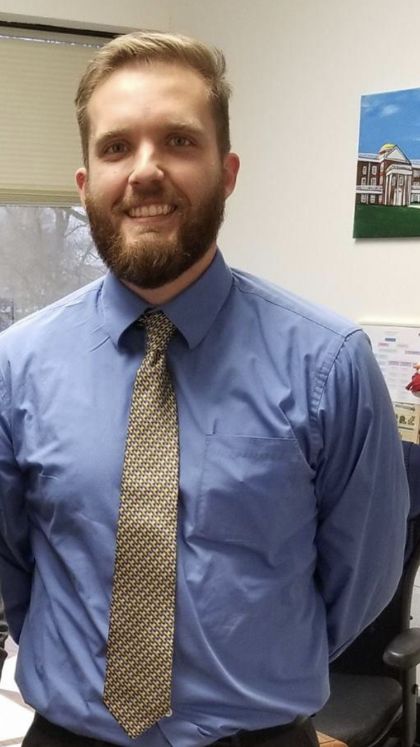
Trusted professors helped alum realize dream
From criminology to counseling: A journey shaped by Longwood's faculty and opportunities
For Joseph (Joey) Siverd BS'15, MS'18, Longwood's magic is the faculty.
Siverd entered Longwood with a plan to major in criminology.
"I always knew that I wanted to [be in] a 'helping profession,'" he said. "As a young student, the idea of working in the criminal justice field lent itself to that goal."
As Siverd delved deeper into his undergraduate coursework and worked with more professors, he discovered he had a strong interest in sociology, "I realized I wanted to do something where I could connect more deeply with consumers of human services…".
Enter Longwood's faculty.
He credits a long list of trusted professors who helped him realize this double major would help him achieve his career goals and discovered that he wanted a foundation in sociology and criminology.
"In the real world, they can overlap," he explained.
However, as he prepared to graduate from Longwood with a double major, he discovered he wasn't finding jobs that fit his passion — connecting and working with people and their communities.
Siverd again turned to his trusted professors and advisor. They recommended Longwood's Masters of Science in Counselor Education program that balanced mentoring, classroom instruction, and practical learning with a "diverse, well-rounded faculty" at the helm.
Siverd spoke with the then program chair, Dr. Kevin Doyle, and learned that at the time Doyle was chairman of the Virginia Board of Counseling and that the program faculty were designing a curriculum that would align with the Council for the Accreditation of Counseling and Related Educational Programs (CACREP) guidelines.
He recognized that the program's dedicated faculty, rigorous curriculum, and progress toward accreditation were where he could continue his journey. Cementing Siverd's decision was the wealth of opportunities offered outside the classroom.
Among the available hands-on learning experiences, he found the one that bridged his classroom experiences and his career goals; a practicum at Longwood's Counseling and Psychological Services (CAPS).
Another exciting opportunity arrived in the form of a study abroad elective course with a focus on examining grief and loss in Europe after World War I, led by Dr. Maureen Walls-McKay,
The group traveled to London, Normandy, and Paris, exploring "a unique experience in thinking of grief and loss beyond the typical interpretation," Siverd said.
Siverd said his coursework, especially the experiences he had in the psychopathology course, helped him develop skills to treat a broad range of clients; and learn about multicultural counseling and ethics in counseling.
These experiences provided him with the framework to practice community-based services that help individuals maintain stability in their communities.
Now, as a lead clinician for the assertive community treatment team at Richmond Behavioral Health, Siverd uses his experiences in the counselor education program as a guiding principle in his daily work.
"Every day, with every client," Siverd said, "starts with unconditional positive regard for clients who can often present as challenging and with thoughts and feelings that are complex and require a calm, open-minded response."
